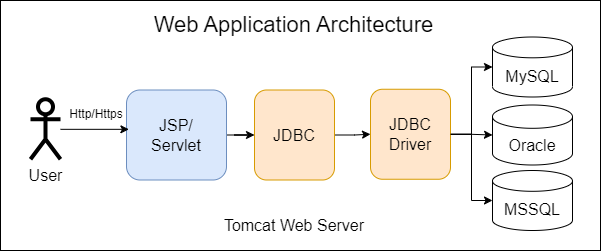Unlocking the Power of Advanced Java: Essential Skills for Modern Developers
Advanced Java refers to specialized areas of Java programming that extend beyond the basics, focusing on the development of complex, real-world applications. It encompasses key technologies such as JDBC (Java Database Connectivity), Servlets, and JSP (Java Server Pages), making it crucial for building robust web applications, enterprise solutions, and distributed systems.
Enterprise Application Development: Learn to create scalable, secure, and reliable enterprise applications using Java EE, essential for large-scale business needs.
Web Services: Gain expertise in creating and consuming RESTful and SOAP-based web services, enabling seamless integration between applications.
Advanced Database Interaction: Master database connectivity with JDBC and ORM frameworks, enhancing data management and retrieval capabilities.
Security: Implement robust security measures to protect Java applications from threats and vulnerabilities, ensuring data integrity and user trust.
Mastering Advanced Java equips developers with the skills to create high-performance applications, making it a vital area of expertise for anyone pursuing a career in software development. With a focus on backend and enterprise-level projects, proficiency in Advanced Java is essential for delivering scalable and secure solutions in today’s technology landscape.

The Advanced Java syllabus is designed to deepen your understanding of Java, building on Core Java concepts and exploring more specialized areas essential for developing sophisticated applications.
This comprehensive syllabus equips you with the essential knowledge required for developing sophisticated and scalable Java applications. Dive into Advanced Java and enhance your skills for a successful career in software development!
Advanced Java builds upon Core Java, focusing on high-level applications and sophisticated concepts essential for enterprise-level development. Here are some intriguing insights into Advanced Java:
Duration: 6 Weeks
Class Hours: 1 hour/day
Lab Hours: 1 hour/day
Prerequisite: Knowledge of Basic Java
Certificate: Awarded upon successful completion
Trainer: Industry Experienced Mentor
Study Material: Comprehensive books, notes, and online tests
Online Test: Unlimited access
Project: Yes
Languages: English, Hinglish, Hindi
Fees: ₹ 6,000/- + 18% GST
Placement Support: No
Are you ready to take your Java skills to the next level? Our Advanced Java Training Program is designed for individuals who already have a foundation in Java and wish to master advanced concepts and technologies. This program focuses on building robust, scalable applications and covers essential topics such as:
Join us to enhance your Java skills and pave the way for a successful career in software development. Enroll now and start your journey toward mastering Advanced Java!
Why Learning Advanced Java is Essential for Career Growth
Career Advancement: Mastering Advanced Java skills significantly enhances your employability, as these skills are highly sought after in the job market. This expertise can open doors to higher-level positions and competitive salaries.
Expertise in Enterprise Solutions: Advanced Java empowers you to build solutions that drive large-scale enterprise applications, making you a vital asset to organizations looking to implement robust and scalable systems.
Staying Ahead with Future Technologies: By learning Advanced Java, you position yourself at the forefront of modern software development. This knowledge includes mastering essential frameworks and technologies that are integral to the evolving tech landscape.
Investing in Advanced Java not only enhances your skill set but also enables you to contribute meaningfully to complex software projects. By becoming proficient in this area, you make yourself invaluable in the software development industry, ready to tackle the challenges of today and tomorrow.
Click one of our contacts below to chat on WhatsApp
Social Chat is free, download and try it now here!
